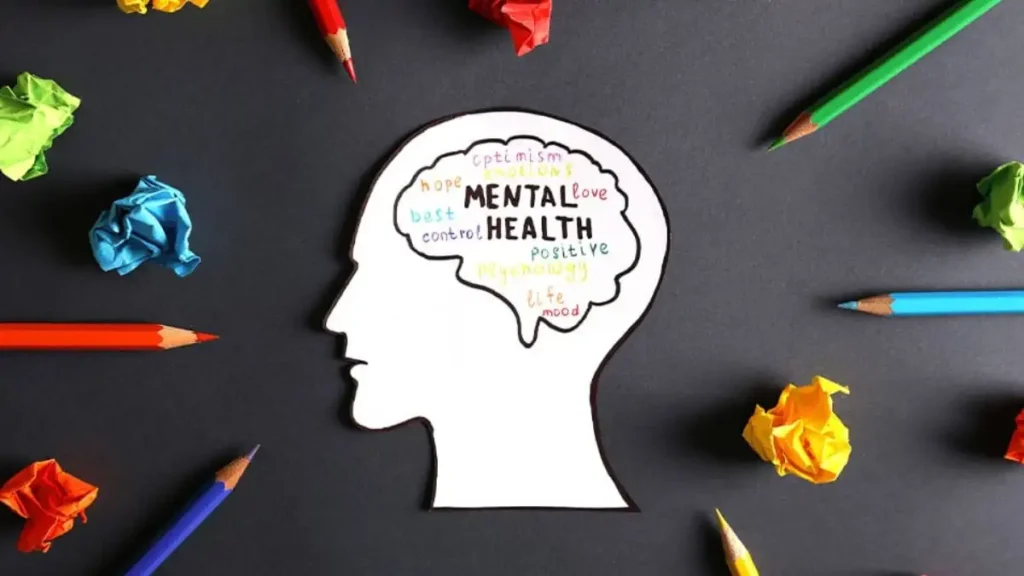
In today’s fast-paced, constantly connected world, we talk a lot about fitness, food, and physical health—but when it comes to mental health, silence still dominates the room. Why? Because mental health is invisible, and often misunderstood. It doesn’t bleed, it doesn’t show scars, and yet, it can break a person from the inside, quietly and completely.
Mental health matters—for children, teenagers, adults, and the elderly. It impacts how we think, how we feel, how we handle stress, and how we make choices. Just like the body, the mind also gets tired, ill, or overwhelmed. Yet in many families, especially in India, talking about mental health is still seen as a sign of weakness, madness, or shame. This stigma is not just outdated—it’s dangerous.
🧩 What Is Mental Health?
Mental health is not the absence of mental illness. It is the presence of emotional, psychological, and social well-being. It affects:
How we cope with challenges
How we relate to others
How we handle stress, grief, or trauma
How we make decisions and live meaningfully
Good mental health gives us the strength to bounce back after failure, the clarity to manage daily life, and the emotional resilience to handle life’s ups and downs.
🚨 Signs That You Shouldn’t Ignore
Mental health struggles don’t always look dramatic. Sometimes, they whisper:
Constant sadness or hopelessness
Loss of interest in things once enjoyed
Fatigue or low energy, even after rest
Difficulty sleeping or sleeping too much
Feeling empty, anxious, or angry all the time
Trouble concentrating or making decisions
Avoiding people, even loved ones
Physical symptoms with no clear cause (like headaches, body pain)
These signs can appear slowly and seem “normal,” but over time they grow heavier. That’s why it’s important to recognize them early and seek help—just like you would for a fever or injury.
🧨 Why the Stigma Exists
In many societies, mental health is either not understood or not accepted. People may say:
“It’s just stress, ignore it.”
“You’re overthinking.”
“Don’t act crazy.”
“Strong people don’t cry.”
Such phrases do not help. They isolate people further and stop them from seeking support. This stigma can lead to shame, guilt, and silence, making the problem worse.
🛑 Breaking the Stigma Starts With Us
It’s time we treat mental health like physical health:
Depression is not laziness
Anxiety is not attention-seeking
Therapy is not weakness
Taking medication is not madness
Talking openly, listening without judgment, and showing compassion can help someone feel seen, heard, and validated. Sharing your own struggles (even small ones) can encourage others to open up too.
🩹 Ways to Find Support and Heal
1. Talk to someone you trust – A friend, parent, teacher, or even a colleague. Just sharing how you feel can reduce the burden.
2. Seek professional help – Therapists, psychologists, or psychiatrists are trained to help without judging you. Therapy is healing.
3. Use mental health helplines – In India, helplines like iCall, Snehi, and Vandrevala Foundation offer free emotional support.
4. Practice self-care – Journaling, walking, meditating, proper sleep, eating nutritious food, and unplugging from social media can really help.
5. Avoid toxic environments – Whether it’s a relationship, workplace, or social group—if something constantly makes you feel unworthy, it’s okay to leave.
6. Don’t isolate yourself – Even if it’s hard, try to connect. Join a community, support group, or online forum.
🌈 Final Thoughts: It’s Okay Not to Be Okay
You are allowed to cry. You are allowed to rest. You are allowed to feel lost or broken. But you are not alone—millions of people struggle with mental health, and many recover and grow stronger.
Let us create a world where mental health is normal to talk about, where therapy is as normal as going to a doctor, and where people can heal without hiding.
Because when we start talking, we start healing.
